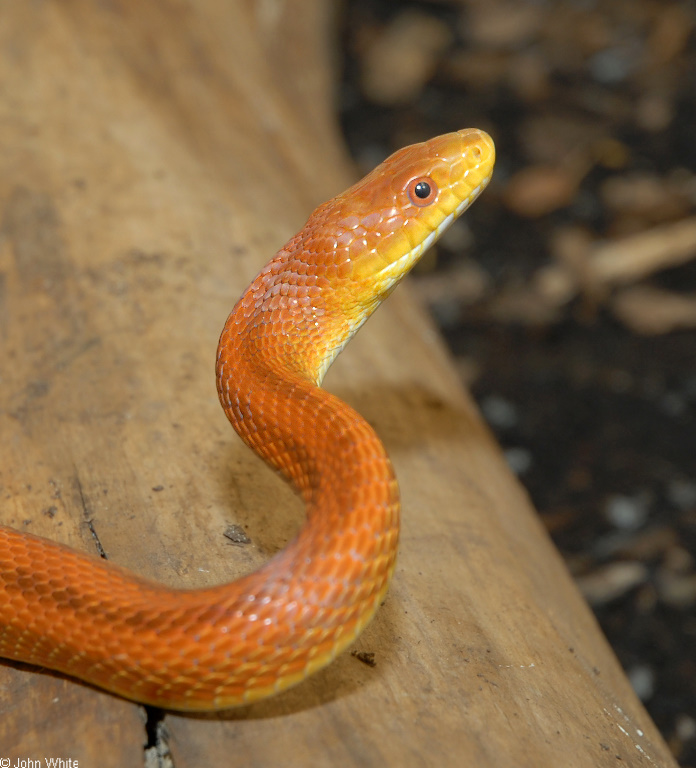|
| Query: rat | Result: 73rd of 779 | |
Everglades Ratsnake (Elaphe obsoleta rossalleni)
| Subject: | Everglades Ratsnake (Elaphe obsoleta rossalleni)
| | Poster: | John White (john.white161@verizon.net)
| |

| Resolution: 696x768
File Size: 177077 Bytes
Upload Date: 2007:12:28 17:57:11
|
Everglades Rat Snake
Scientific name: Elaphe obsoleta rossalleni
Description: Average adult size is 36-72 inches (91.4-182.8 cm), record is 90 inches (228.6 cm). Adults are orangish with 4 faint black longitudinal stripes. The belly is pale yellow-orange. The tongue and iris are orange. The scales are weakly keeled, and there are 27 dorsal scale rows at midbody. The pupil is round.
Range: In Florida, Everglades Ratsnake is found in the Everglades region from Lake Okeechobee south to the tip of the peninsula and into the upper keys. In this area, it also intergrades (interbreeds) with the yellow rat snake (Elaphe obsoleta quadrivittata). Adults of these intergrade specimens may be yellow-orange with faint blotches. This subspecies is not found outside of Florida.
Habitat: Commonly found near pinelands, hardwood hammocks, swamps, marshes, prairies, agricultural fields, and residential areas.
Comments: The Everglades rat snake is primarily active at night. It is both a terrestrial borrower and extremely good climber. It is found under rocks and boards, and in trees under bark and within knot holes and palm fronds.
Everglades Ratsnake feeds on rodents, lizards, frogs, and birds and their eggs.
Everglades Ratsnake lays eggs. Breeding occurs from April-July, 5-27 eggs are laid during the summer, and newborns hatch from July-September.
Comparison with other species and subspecies: The yellow rat snake (Elaphe obsoleta quadrivittata) adult has a yellowish body and iris, and black tongue; the juvenile lacks a pinkish hue. The juvenile corn snake (Elaphe guttata guttata) is brownish with a checkerboard patterned belly.
|
Comments |
|---|
| | Guest |
|
Elaphe obsoleta rossalleni (Everglades Ratsnake)
Common Names: Everglades Rat Snake, Chicken Snake
Range: Found from extreme southern Florida north into Glades, Martin, and Okeechobee counties. The draining of the everglades and planting of Australian Casaurina trees along highways has allowed the everglades ratsnake to move northward and the yellow ratsnake (E. o. quadrivittata) to move southward. The two subspecies readily intergrade with one another to the point that true, nearly patternless, orange-red everglades rats have now become quite hard to find. |
| | cialis shop |
|
| EMM2nL fqqxuqch iofnnanh rxsvrvqi |
| | Guest |
|
| this snake was amazing |
^o^
Animal Pictures Archive for smart phones
^o^
|
|
|